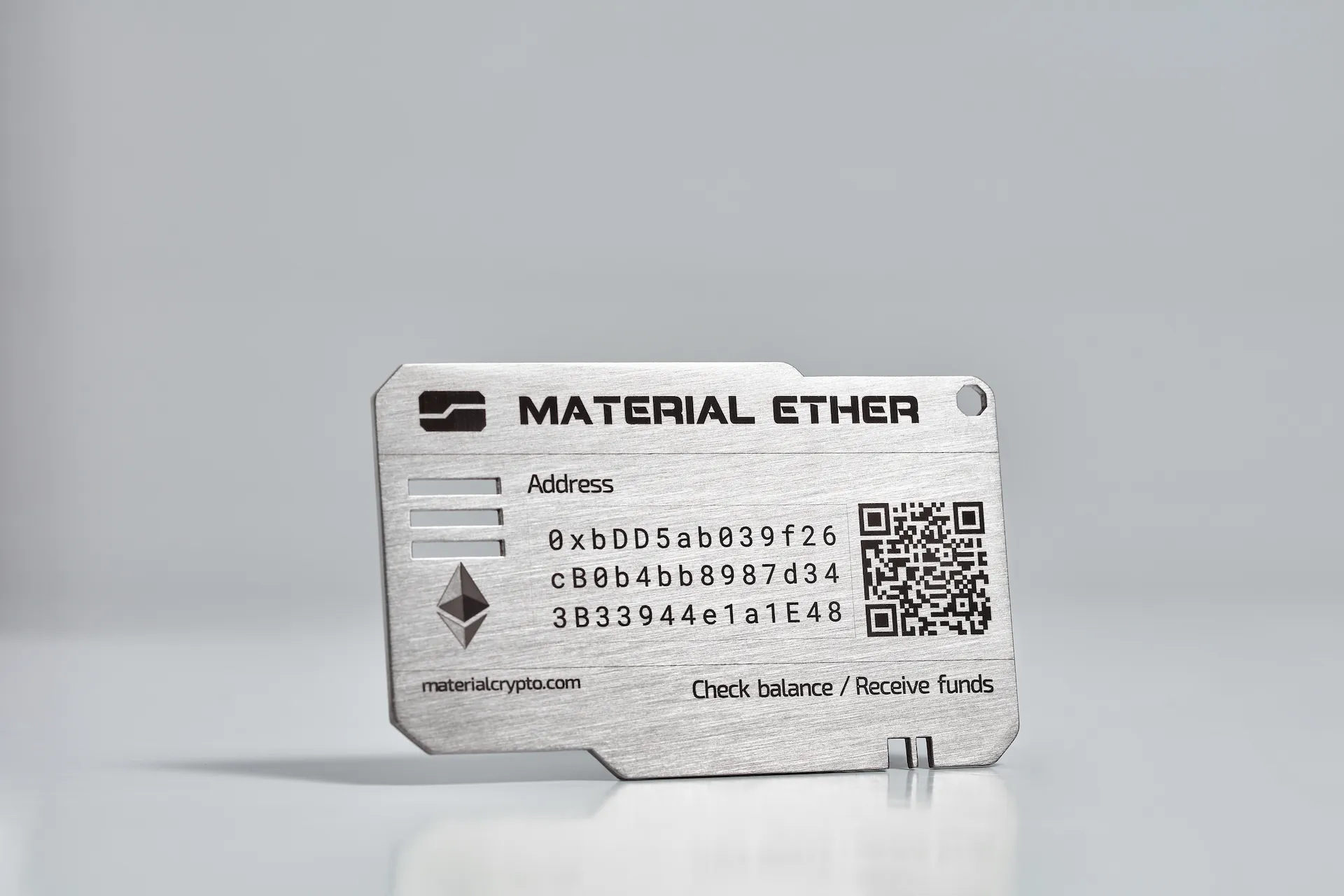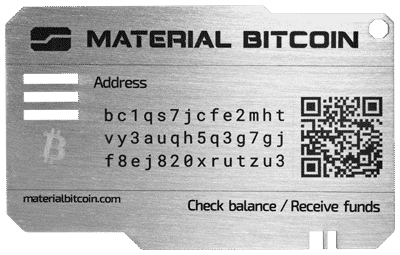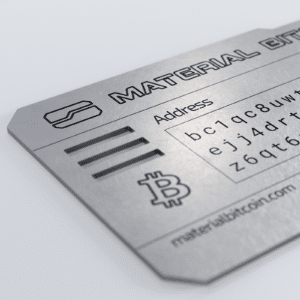Whether you are a digital person, who prefers online transactions, or just an old-school person who likes to pay with cold, harsh cash, you need to store your money and cards safely, away from anyone else.
Since the origins of paper currency in the 17th century, wallets have been quite a handy invention to store our money, not only to hold the cash needed to get through the day but also to store debit and credit cards.
How important is your wallet to you? Personally, there is no way I can leave home without it. How about you?
With the arrival of cryptocurrencies, and due to their digital nature, they can even be more susceptible to hackers than traditional currency. So, how can we keep our crypto safe? Well, just like regular wallets for paper money, crypto wallets are specially designed to provide the most secure storage device for your cryptocurrency that you can find in the market.
This article will describe the two main types of wallets for your crypto, so you can choose the right wallet for your needs.
Hardware wallets vs Software wallets, ¿which is the safest?
What are the two main types of wallets?
People have different preferences when it comes to storing money and making payments. On the one hand, some people opt to use cash; on the other hand, people like me, love digital payments; to each his own. Which one do you use more often and why? I know you’ll have a lot of answers to this.
In cryptocurrency, we also have different ways of storing funds. There are hardware wallets and software wallets. Both present unique security features with advantages and disadvantages, making them suitable for various purposes depending on your needs.
Analysis of Hardware Wallets
What is a crypto hardware wallet? in a straightforward definition, it holds cryptocurrency or crypto assets in “cold” or offline storage, isolating it completely from the internet. Think of it as if you were carrying a hand-carry wallet that keeps your cryptocurrency instead of storing your bills and coins. It’s like having a portable safe to keep your valuables, but you are storing digital currency instead of jewelry or cash.

They are known as ‘cold storage’ since they do not require web connectivity and are thus considered the safest form of cryptocurrency storage. While there might be easier methods for storing your valuables, this is the most effective way to ensure your investment is protected. It offers a secure way to keep your digital assets for an extended period, making them ideal for long-term investment purposes.
What are hardware wallets mainly used for?
I don’t know you, but I found it difficult to trust banks fully or crypto exchanges when talking about cryptocurrencies. I feel more secure knowing that I have exclusive access to my money, which is what hardware wallets guarantee you. In the end, it all comes down to your needs, but if you are into long-term cryptocurrency storage, hardware wallets are the ideal solution! You can learn about the risks of leaving your cryptos in an exchange here.
Using a hardware wallet for cryptocurrency is like keeping your valuables in a safe, giving you peace of mind, and ultimately protecting your investments. You are confident that no one can access them without the key or combination. Since they are disconnected from the internet, your trades or transaction history cannot be accessed by a third party, providing you with a virtually impenetrable barrier to hacking attempts and ensuring the safety of your digital assets.
Types of hardware wallets
If there are leather, trifold or belt wallets for paper money, there are also different types of crypto cold wallets available in the market. Each with its unique features and design. Trezor, Ledger, KeepKey, or Material Bitcoin, to mention a few, are some of the best options available in the market.
These cold wallets are known for their durability, security, and ease of use, making them a popular choice among cryptocurrency enthusiasts. With their popularity also comes the price, of course!
So what is the best type of hardware wallet for you? It all depends on your goals, needs, and even the kind of crypto that you are investing in. For example, Trezor is known for its simple and user-friendly interface, while Ledger is widely regarded as one of the most secure hardware wallets on the market. KeepKey, on the other hand, is known for its large display, which makes it easier to view your transaction details.
I know it is hard to choose from a wide range of products. You feel like you need to check all the wallets in the department store. But focus on what really matters! With so many options when choosing a crypto hardware wallet, you must consider your specific requirements, such as the frequency of transactions, the number of digital assets you want to store, how safe it is, and the budget.
Some renowned brands such as Ledger, and KeepKey are good options, but they usually don’t come at an affordable price that will make you think twice before choosing one; besides, it’s not all about the popularity of the brand but also about functionality; security, and aesthetic look too!
Moreover, I highly recommend getting a cold wallet built for a specific type of crypto; in other words, you should have a hardware wallet for your Bitcoin and another for your Ethereum. It will ensure that your crypto is stored and encrypted separately from each other, providing an extra layer of security.
For instance, Material Bitcoin hardware wallet is specially crafted to store your Bitcoins, and Material Crypto ETHEREUM, as the name implies, is for your Ethereum. Both are encrypted offline cold wallets with top-notch security features built from AISI 304L steel, without human intervention, and with a 100-year guarantee, which makes them an excellent choice for both beginners and experienced crypto holders. All these features rank them among the safest and most affordable hardware wallets you can find in the market.

Stunning with their sleek and modern design, Material Bitcoin and Material Crypto Ethereum hardware wallets also offer a one-of-a-kind personalized hardware wallet where you can engrave your name. Talk about everything you need in a hardware wallet!
Analysis of Software Wallets
I am sure you use your bank’s debit/credit card or mobile app to pay for your needs, right? Digital payment is so popular right now, and we both know why. It’s so easy and accessible; instead of withdrawing paper bills, use or transfer your funds through the internet directly from your bank account as you please.
Like this process, software wallets store your private keys to access your cryptocurrency funds through the internet. Software wallets don’t actually hold your digital funds but work as an interface to the blockchain, which contains all the transactions and cryptocurrency affiliated with your wallet address. You can think of the blockchain as your bank that holds your digital assets and the software Wallets as the tool to use them.
These kinds of hot Wallets, as they are called, are built to be used through a web browser extension or an application installed on your desktop or cellphone. They are accessible from anywhere with an internet connection and are typically easier to use than hardware wallets. Nevertheless, considering that they need to be connected to the internet to access your private keys makes them vulnerable to hacking and less safe than hardware or cold wallets.
What are software wallets used for?
To answer this question, you must first ask yourself how many digital assets you need for your short-term transactions and investments.
The features previously mentioned make them ideal for short-term storage and daily cryptocurrency transactions; besides, you need just an internet connection to access your fund anywhere, so be aware of putting just the amount you will use and avoid having unnecessary funds accessible through the internet.
Types of software wallets
Several software wallets are available, including desktop, mobile, and web-based. They work similarly to your online bank app; while a desktop wallet is installed in your computer, a mobile wallet is installed on your phone.
To sum up, choosing one depends on your likes. Web wallets are accessed through a web browser and are typically the most easy-to-use software wallet. Mobile wallets are more convenient since they can be accessed from your phone at any time, and desktop wallets offer an extra safety layer, considering that they run on their own software and not through a browser.
Which is the best type of software wallet?
Software wallets are accessible from multiple devices anywhere with an internet connection, which makes them less secure than hardware or cold wallets; Therefore, it is always important to research and compare different wallets’ features and security measures before purchasing any of them.
For instance, desktop wallets offer a higher level of security than other hot wallets, making them ideal for those who require extra protection for their digital assets. Mobile wallets are convenient for those who are always on-the-go transactions and are often available for both iOS and Android devices.
In the end, this decision comes down depending on your preference. However, I suggest always checking the reviews first and comparing every possible option to make a wise decision.
Hardware wallets vs software wallets: Which is more secure?
Many features will move the needle backward or forward when choosing a crypto wallet. With software wallets, you might get a great user experience or even an excellent user-friendly interface, to mention some, but considering that to use them, they need to be connected to the internet, makes them an easier target for hackers to violate their security and lose your crypto for good.

Fortunately, the numerous layers of security provided by hardware wallets make this liability minimal if we keep our private keys in a hardware wallet or, at least, keep most of them. In other words, you should use a software wallet to hold whatever you want to use for transactions or trades in a short period, and the rest should be stored in your hardware wallet.
Hardware wallets vs software wallets: Which is better for me?
This decision depends on several factors, such as your goals and purposes when holding cryptocurrency. You better get a hardware wallet if you are in for the long game with long-term crypto investing goals. But a software wallet will suit you best if you need to access your crypto assets at all times for trades and transactions in short periods.
In conclusion, you should always be extra careful regarding any amount of capital invested in cryptocurrency. Therefore you should have both types of wallets: a hardware wallet that works as a safe for most of your capital due to its high-security measures and a software wallet that allows you to use part of it conveniently fast. In simple words, I recommend using software wallets for quick transactions with just the amount needed to do so and hardware wallets to keep the rest of the capital safe.
If you have any questions or want to share your experience buying software or hardware wallets, do not hesitate to leave a comment below.
We would love to share our thoughts with you!The safest










I want to open this wallet
It is remarkable, the helpful information
We are glad you liked it. Best.